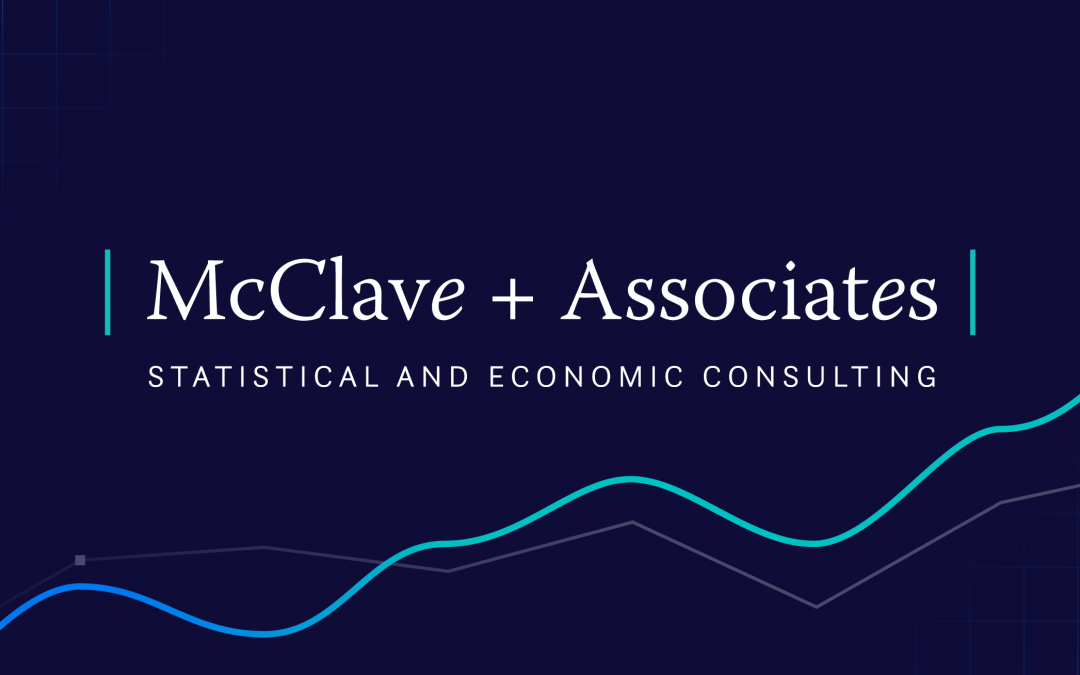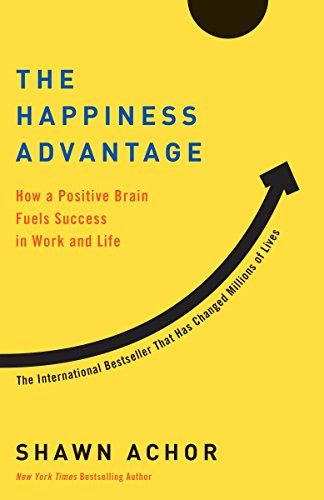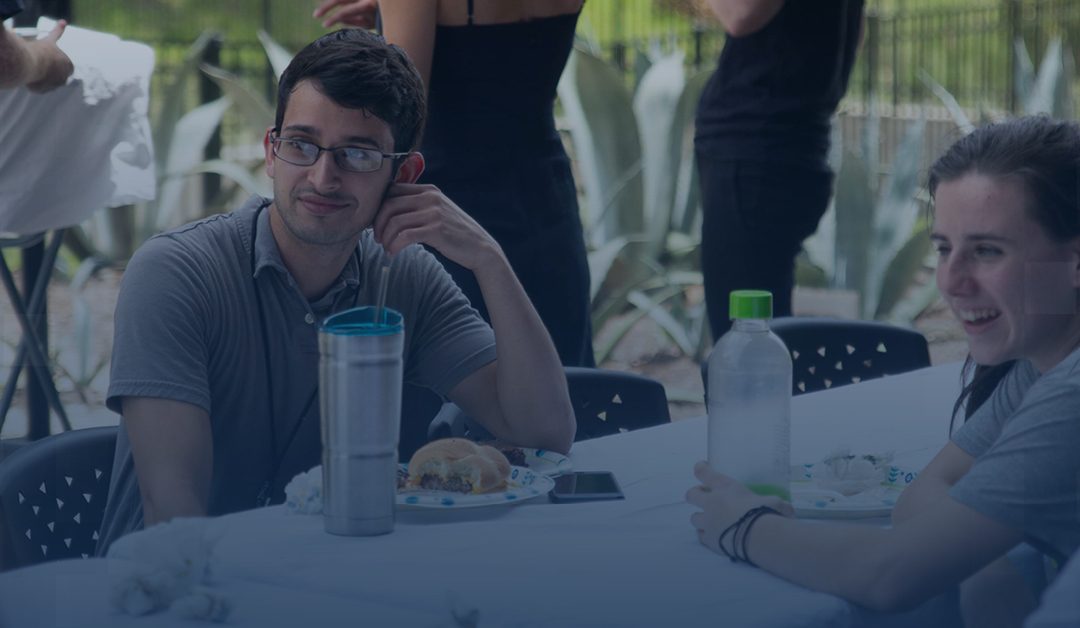
by Rob Kneuper | Aug 17, 2020 | Blog
COVID-19 is dramatically changing the economic landscape. Some industries are faring well while others are being devastated by the pandemic. Businesses are rapidly adapting to the demands and peculiarities of living within the constraints of a pandemic. Of particular concern to me is the plight of small businesses. In many ways, small businesses are the lifeblood of the American economy. Indeed, before COVID-19, various studies found that small businesses accounted for about 50% of private-sector jobs. Moreover, Americans highly value their right to start a small business – be it a local restaurant, a small retail shop, or an online business.
But small businesses historically have been adversely impacted by recessions in part because many small businesses operate on limited cash flow. This begs the question: how are small businesses enduring this now prolonged impact of COVID-19?
When COVID-19 began in the spring and many states shut down or substantially reduced various business services, it was clear that small businesses were skeptical they could survive a prolonged pandemic. For example, in an April 2020 survey of 5,850 small businesses across the country, Main Street America found that 75% of respondents reported that their business revenues had declined by more than half. And 66% of respondents predicted their business would be at risk of closing if the economic impact of the pandemic continued for 3 to 5 months.
Now we are more than five months into this pandemic and there appears to be no end in sight. Indeed, it appears that many states are pausing their re-openings while others are re-imposing restrictions they had lifted earlier. This would seem to have dire consequences for small businesses. But not so fast…
Despite the prolonged pandemic, it appears that small businesses are resiliently adapting to the changing economy and increasingly have reason to be optimistic. In late July, the U.S. Chamber of Commerce conducted a survey of the small business impact from COVID-19. The survey found that while 23% of the small businesses surveyed had temporarily closed in late May, 86% reported that as of July they were either fully (52%) or partially (34%) open. And there was a general finding of cautious optimism regarding the future of small businesses.
This sense of cautious optimism is the result of several factors. For one thing, the small business subsidies by the government appear to have helped to sustain them through the roughest part of the current COVID-19 recession. And certain industries are actually growing or, at least, sustaining themselves despite the pandemic. For example, e-commerce retail is growing and expected to thrive in the future — and a lot of small businesses heavily rely on e-commerce. More generally, the economy seems to be slowly recovering from the pandemic. For example, recent unemployment figures show the U.S. unemployment rate at 11.1% in June which is down from 14.7% in April.
We are obviously far from being out of the woods in terms of small businesses withstanding this pandemic. Many small businesses remain concerned about having to permanently close if the pandemic continues for a prolonged period of time. And there are recognized limits to the ability of the government to continue to subsidize small businesses under a prolonged recession. There is also concern about a second wave of the pandemic hitting in the fall or winter.
Moreover, certain industries and certain types of small businesses have been particularly hard hit by the pandemic. Studies have found that small businesses in certain geographic areas have been strongly hit by the economic impact of the pandemic, including those in more densely populated cities. And most studies have found that minority-owned small businesses have been particularly hard hit by COVID-19. In addition, studies estimate that many of the hardest-hit industries will not likely return to the levels of business that existed pre-COVID-19 for at least 5 years. This includes industries which involve a lot of small businesses such as restaurants, hospitality, retail and education. Finally, new business start-ups have also fallen dramatically since the spring – a trend that needs to substantially change for our economy to recover from this pandemic!
Despite all these challenges, it appears that small businesses are rapidly adapting to the new normal of running a business amidst a pandemic. Locally-owned restaurants have added curbside pickup and are gradually expanding the to-go portion of their business. Local retailers are also now frequently offering curbside pickup in addition to adjusting their hours, limiting the number of customers, and even offering special hours for their most vulnerable customers. Various small businesses are substantially expanding their online offerings. Small business manufacturers are adjusting their work environments to allow for appropriate social distancing through the creation of manufacturing pods. Small businesses generally are greatly expanding their work-at-home options and related support capabilities. And at least some new small business opportunities are being created amidst this pandemic – note the advent of COVID-19 disinfection services!
It is difficult to say what lies ahead for small businesses given the rapidly expanding number of COVID-19 cases in the U.S. and the associated burden it is creating on our healthcare system. But it appears that many small businesses are adapting to what now appears to be a pandemic prone economy. Ultimately, I remain eternally optimistic that our small businesses will withstand this pandemic — and other economic crises that may come our way in the future — and continue to be the lifeblood of the U.S. economy.

by info-services@infotechinc.com | Aug 13, 2020 | Blog
In May of 2020, our four summer interns braved the new world of remote internships. In years past, the Infotech Consulting interns have co-occupied the large southeast corner office on the third floor of our headquarters in Gainesville, Florida. Due to the coronavirus, our offices converted to a remote work situation. Knowing the immense mutual benefits of our intern program and the flexibility of remote work, all four interns chose to help us adapt our program to a remote experience.
After weeks of zoom calls, sifting through data, documents and SAS programming, our interns have reached the end of their time with the team. During their last week, we asked them to reflect on their experience and give us a peek into what is next in their lives and careers.
What was the most memorable aspect of your Infotech Consulting internship?
 Alejandro Michel: Aside from all the fancy data management skills that I picked up from this internship, I really enjoyed the weekly lunch meetings between my intern cohorts and the two new full-time hires; it’s fascinating how they each have different skills and virtues that allow them to thrive at Infotech. One thing we do have in common is a competitive edge to score points when playing CodeNames, haha. I don’t know if I just got lucky to be part of this cohort, or if people are amazing everywhere, but I’m glad we’ve made the most out of our non-traditional intern experience.
Alejandro Michel: Aside from all the fancy data management skills that I picked up from this internship, I really enjoyed the weekly lunch meetings between my intern cohorts and the two new full-time hires; it’s fascinating how they each have different skills and virtues that allow them to thrive at Infotech. One thing we do have in common is a competitive edge to score points when playing CodeNames, haha. I don’t know if I just got lucky to be part of this cohort, or if people are amazing everywhere, but I’m glad we’ve made the most out of our non-traditional intern experience.
 Hallie Miller: I did not know much at all about litigation before I got here, so everything I learned about the litigation process was certainly memorable. However, I think the most memorable aspect would have to be the people. Even working in a remote environment because of the pandemic, I still got a taste of the wonderful community Infotech has. Everyone I worked with while I was here or had any sort of interaction with was great!
Hallie Miller: I did not know much at all about litigation before I got here, so everything I learned about the litigation process was certainly memorable. However, I think the most memorable aspect would have to be the people. Even working in a remote environment because of the pandemic, I still got a taste of the wonderful community Infotech has. Everyone I worked with while I was here or had any sort of interaction with was great!
 Hayden Hampton: My most memorable aspect of the internship was being able to work with the expert econometricians and statisticians. Over the summer, I read many of the reports written by experts and engaged with them on a regular basis. This internship provided me with the opportunity to see firsthand how much value an individual with a strong foundation in theoretical material can provide.
Hayden Hampton: My most memorable aspect of the internship was being able to work with the expert econometricians and statisticians. Over the summer, I read many of the reports written by experts and engaged with them on a regular basis. This internship provided me with the opportunity to see firsthand how much value an individual with a strong foundation in theoretical material can provide.
We had another Infotech Consulting first this year with Kevin Fernandez and the ITI Ventures program. Teaming up with a local Gainesville startup Evren Technologies, Infotech Consulting sponsored an intern that would collaborate with the Data Management team to take their product designed to aid people suffering with PTSD to the next level.
 Kevin Fernandez: Working closely with the folks at Evren Technologies has definitely been the best part of my internship. I got the opportunity to engage in fascinating conversations about an interesting scientific subject, as well as learn about the kind of work that goes into making such a device, as their Phoenix prototype, possible.
Kevin Fernandez: Working closely with the folks at Evren Technologies has definitely been the best part of my internship. I got the opportunity to engage in fascinating conversations about an interesting scientific subject, as well as learn about the kind of work that goes into making such a device, as their Phoenix prototype, possible.
What was the most unexpected part of your experience?
Alejandro Michel: I was pleasantly surprised that the consulting team uses SAS® Studio, as opposed to other SAS environments, for programming. This made it extremely easy for me to hit the road running with tasks, and focus more on coding, rather than spending time trying to adapt to a new environment. Aside from the technical side, I was also pleasantly surprised by how seamless of a transition it was to remote work. I think the stellar employees at Infotech are what create that vicarious camaraderie from home–it’s impossible to fail when you have such a supportive team by your side.
Hallie Miller: I wasn’t sure what to expect from case development work, so I’m not sure that I can say that any of the work was unexpected. One thing that did surprise me, however, was that my nitpickiness did not seem nitpicky to the case development team. I am a very detail-oriented person, and formatting of citations matters to me. In my first meeting of the whole internship with the case development team, they were talking about what they like and dislike in citation styles, and I was surprised that a whole group of people cared about them like I did. It turns out we are all detail-oriented in case development. Later in the summer, I noticed a discrepancy in how depositions were cited in the footnotes of a report. I was going to ask my team about it, but was also worried about sounding too finicky. Then, before I had the chance to ask about it, my supervisor mentioned seeing the same discrepancy. It conveyed to me that my very detail-oriented nature that I often worry could annoy others is actually shared by some people and can be valued.
Hayden Hampton: Surprisingly, soft skills and the ability to interact and effectively communicate turned out to be just as valuable as any technical skill I learned. The importance of this was underscored with the spread of COVID-19, and the only option was to work remotely.
Kevin Fernandez: The most unexpected part of my experience was definitely the particular domain to which I went on to apply the data analysis skills I cultivated in the classroom. While doing my undergrad, I would have never imagined being involved in a biomedical engineering setting doing data analytics to aid in designing a product that could help treat PTSD. I learned a lot about a subject that I never really knew existed prior to this internship, and I could not be more grateful to be involved.
Where are you headed after your internship?
Alejandro Michel: I will return for my final semester of graduate school at Florida State University (ending Dec. 2020), after which I plan to start working full time.
Hallie Miller: I’m heading into my senior year of college at Furman University! I will be graduating in May but do not yet know if I will be working after that or pursuing more education.
Hayden Hampton: I’m entering my second year as a PhD student in the Big Data Analytics Program at the University of Central Florida. At the end of August I’ll be teaching a class called Sample Survey Methods at UCF. I’m also in the process of submitting a proposal for a fellowship grant in the field of artificial intelligence with the National Science Foundation.
Kevin Fernandez: After my internship, I’m planning on attending Georgia Tech to pursue an MS in Analytics where I can further hone my data analysis skills to apply in all sorts of domains. This particular internship has made me aware of a fascinating niche that uses data analysis regularly and has convinced me to seek out other opportunities like this in the future, mainly because of the immense potential to help change people’s lives.
A very special thank you to Alejandro Michel, Hallie Miller, Hayden Hampton, and Kevin Fernandez for evolving the Infotech Consulting intern program. The curiosity and passion you add to our team is long-lasting. Good luck in your next chapter, and we hope to hear from you soon.

by info-services@infotechinc.com | Jul 23, 2020 | Blog
 Adaptability and open-mindedness are key traits when working for Infotech Consulting. After all, to sift through and understand mountains of data and then find keen insights from it, one has to be able to problem solve – a skill for which those traits are a necessity.
Adaptability and open-mindedness are key traits when working for Infotech Consulting. After all, to sift through and understand mountains of data and then find keen insights from it, one has to be able to problem solve – a skill for which those traits are a necessity.
After graduating with his Masters in Economics from UF and joining the Consulting team amidst a pandemic that postponed his trip to Europe and thrust him into the middle of an unprecedented experiment in remote team-building, it’s safe to say that Infotech Consulting’s newest Data Management Specialist, Michael Smith, is more than prepared for the role. As he planned to enter his career, he said, he was given some good advice during the transition:
“Don’t forget to live your life, my friend.”
“I’m very driven and I find satisfaction in striving towards goals, but it’s also easy to be consumed by them. I think it’s important to remain mindful and it’s something I try to work on every day,” he said. (You can read up on the mental preparedness Michael practiced leading up to his GRE here.)
Even over a Zoom call, it’s evident that Michael genuinely does follow this advice. His demeanor emanates an awareness of optimism and steadiness. He mentions a book, The Happiness Advantage, by Shawn Achor, that greatly impacted his approach to his future.
 “The premise of the book is that we’re taught in life that if we work really, really hard and we’re successful, then we will be happy,” Michael said, “But Achor says that we have it all wrong; if we focus on being happier in the present, it’ll actually make us more productive, more creative and more successful. There’s a TED talk about this concept, too.”
“The premise of the book is that we’re taught in life that if we work really, really hard and we’re successful, then we will be happy,” Michael said, “But Achor says that we have it all wrong; if we focus on being happier in the present, it’ll actually make us more productive, more creative and more successful. There’s a TED talk about this concept, too.”
It’s rare to find a team more present and happy in their work than the Infotech Consulting crew, and Michael fits right in.
“I’m really excited to be here, because I think it’s meaningful work. I enjoy working on something that contributes to positive social outcomes. And I think that doing something that has a purpose behind it is really meaningful to me.”
His path to a career in data management started early – quite early, in fact. In middle school, he started working at the local rec center as a scorekeeper for the basketball leagues.
“I quickly learned how to be detail oriented. I kept the score and the stats and the men were definitely very, very competitive, so if they knew something was wrong they would be on your case about it. I definitely had to be on my A-game at all times.”
When the Consulting team met Michael at his intern interview they knew he was the type of employee Infotech strives to hire, according to Paul Manning, Data Management Director. Michael was young, Paul said, but a year later when he accepted a summer internship he proved their first impression was right through his diligence about his work and conscientious approach to getting the job done right.
“He is curious about all we do and why, and is just a really nice guy,” Paul said. “It was a no-brainer that we would offer him a full-time job when he graduated.”
A self proclaimed extrovert, Michael said that remote work hasn’t been as much of a challenge as he thought, and although the pandemic put his post-grad travel plans on hold, it inspired a new routine for connecting with old friends.
 “In college, I got to meet so many different unique cool people, a lot of whom I’ll have lifelong relationships with,” Michael said. “Now that we’re scattered across the country, whether for graduate school or working, honestly it’s almost been better than before because we never really took the time to try to connect with video calls and having this situation sort of incentivized us. I feel like it’s a habit we will probably carry on even after this is all over.”
“In college, I got to meet so many different unique cool people, a lot of whom I’ll have lifelong relationships with,” Michael said. “Now that we’re scattered across the country, whether for graduate school or working, honestly it’s almost been better than before because we never really took the time to try to connect with video calls and having this situation sort of incentivized us. I feel like it’s a habit we will probably carry on even after this is all over.”
Along with Zoom catch-ups, social distancing is a great opportunity to catch up on shows that one may have missed during the last decade of content on the silver screen. For Michael, that included a first-time viewing of the number one Netflix show of 2019, The Office. Though, he’s not entirely sure why it has that spot on the list.
“I would go as far as saying it’s overrated. I mean, you can put that in my article as a defining characteristic of my personality – completely editorial – you can throw it in: Michael thinks that The Office is a bit overrated and I’ll take all the heat,” he said, with a good-humored shrug.
All fictional offices aside, Michael said he’s excited for the day he does get to join his coworkers on the third floor of the Infotech headquarters in Gainesville. Until then, he’ll enjoy the time at home with his two puggles, Lulu and Toby, and plan his trip to Europe for another day.
by Michael Smith | Jul 23, 2020 | Blog
In the wake of so many recent tragedies on a national and international level, it is easy for us all to feel hopelessness and despair – a frustration that things feel completely out of our control. Our problems are too big for a single individual to solve them, and we feel powerless to make our world a better place. Yet, as my favorite government educator, Sharon McMahon, says, “The antidote to despair is action.” When the weight of the world feels heavier than ever, I find that volunteerism is an effective means of taking action. Many of us are desperate for ways to see or provide hope, to make a positive difference in the world or our communities. While it may seem small, volunteering can provide a direct means for being the good and taking action where circumstances seem too big for us to have an impact. Companies can play a critical role in encouraging and providing the means for their employees to spend time volunteering.
Last summer, after months engrossed in research on the impact of the opioid epidemic on children entering the dependency system, I decided to become a Guardian ad Litem volunteer. The Guardian ad Litem (GAL) program ensures that every child in the dependency system – in foster care, or otherwise involved in cases of abuse or neglect – has someone representing that child’s best interests and giving them a voice in the process. Each state has its own program, so volunteers work close to home. I know that my own child has the security of a safe, loving home with access to everything she needs; and I wanted to be able to help give that to others. I can’t make sure every kid in this country has the shelter, food, education, and affection that they need, but I can at least do this for some.
Anyone with compassion and commitment can be a Guardian ad Litem volunteer; all necessary training is provided after the volunteer screening process. But becoming a volunteer does require two indispensable resources: emotional strength and TIME. Along with the minimum requirement of monthly visits to each family assigned to a volunteer, GAL volunteers are expected to submit reports to the court, attend court hearings, and participate in meetings involving the attorneys and case managers working with the family. Volunteers often need to spend time interacting with a child’s school and functioning as a go-between among the many agencies involved to be sure the child gets all the services they need. Above all, the volunteer endeavors to make the child feel seen and heard; and this can be the hardest part of the job. It’s a significant commitment, and a commitment that is so much easier to make when you know your employer is behind you.
During the interview portion of my application process, I was asked how I expected to balance the time requirement of the GAL program while working full time and having my own child to care for. I was able to respond that my work is fairly flexible, and that my employer is understanding and accommodating of non-work priorities. I realized then, and I realize now, that this is remarkable.
While working for Infotech Consulting can mean demanding schedules and time-sensitive work, when I told my supervisor I was interested in becoming a GAL volunteer, she gave me her full support. In fact, she wrote one of my letters of recommendation. Infotech has allowed me to take an hour on an odd Thursday to attend court or to log off early on occasion to conduct a visit at the only time that works for the caregiver. On one occasion, I had a visit scheduled that was critical in order to submit a report to court; and a longer client meeting was scheduled to overlap with the visit. When I told my boss that I would need to leave the meeting early to make my visit happen, I was met with complete understanding, knowing that she trusted me to meet our client’s needs while still ensuring that I could provide necessary support to the children. Thanks to this supportive environment, I also had no reservations about being able to attend my first adoption ceremony as a GAL volunteer on a recent Tuesday morning, and I celebrated a happy ending for a baby and his new family.
Many companies profess a commitment to participating in and improving the communities in which they operate or serve. There is, however, an appreciable difference between encouraging employees to participate in one-off opportunities on weekends or after working hours, and providing an environment where employees can commit to an organization and remain consistently involved. The fact that Infotech has enabled my commitment to the GAL program and, critically, seen it as valuable work is, to me, the epitome of the company living its values: “Family first” and “treat people right.” By empowering employees to volunteer, Infotech shares its best resource – its people and our talents – to make lasting, positive change in the community.

by info-services@infotechinc.com | Jul 7, 2020 | Blog
 One of Infotech Consulting’s Summer 2020 Interns, Kevin Fernandez, sat down to answer a couple of critical questions about his academic interests, his internship expectations, and his desired superpower. Check out this interview to get a glimpse of the next generation.
One of Infotech Consulting’s Summer 2020 Interns, Kevin Fernandez, sat down to answer a couple of critical questions about his academic interests, his internship expectations, and his desired superpower. Check out this interview to get a glimpse of the next generation.
What university are you attending and what is your area of study?
University: University of Florida
Major: Statistics, Economics, and Philosophy
What drew you to that area of study?
I‘ve had a lifelong interest in discussing ideas and getting at the root of issues rather than being misled by their symptoms. This led me to take an interest in philosophical argument in all sorts of domains and the allure of an area of study that prioritized how to think rather than what to think was hard to resist. At the same time, I realized the ubiquity of data in today’s world and how a lot of it (not all) can be used to better understand and resolve contentious problems whose reasons for existing are opaque to our everyday experiences. I centered around philosophy and statistics as my areas of study and along the way I picked up economics as it felt like a great starting domain to explore using data.
What has been your favorite course outside of your area of study?
Game Theory was an extremely insightful class which although had applications in economics was more so a mathematical perspective on decision-making in competitive environments.
What are you hoping to gain, learn, or experience during your Infotech Consulting internship?
I’m hoping to interact with experienced professionals and learn the ins and outs of being effective in a team-driven environment.
Do you have any pets? What kind and what are their names?
My family has a friendly American bulldog-pitbull mix named Robin living in Miami.
If you could have a superpower, what would it be?
I think reading someone’s mind would be helpful, so I would have to say telepathy would be my desired superpower.
Share a fun fact about yourself.
I recently learned how to juggle three bundled up socks during quarantine..

by Jodie Newman | Jun 29, 2020 | Blog
Statistician John Tukey once said, “The best thing about being a statistician is that you get to play in everyone’s backyard.” At any given time, my co-workers and I are immersed in the study of different markets ranging from electronic components to chocolate to chemicals to dental supplies.
Since Dr. Jim McClave called me out of retirement in 2009 to work on the Urethanes case, playing in everyone’s backyard has kept my life interesting. The Urethanes case involved intermediate chemicals used in the manufacturing of rigid and flexible foam. Did you know that urethane chemicals are used to make the insulation in your house and the soles of your shoes? Not surprisingly, our team had a lot to learn about methylene diphenyl isocyanate, toluene diisocyanate, and polyols! Say that three times fast. In my second week at the Urethanes trial in Kansas City, it dawned on me that the Infotech family knew more about MDI, TDI, and polyols than we ever thought we would when my 7-year-old son called to tell me that our memory foam mattress was probably made from chemicals involved in our case!
All of this research and teamwork is necessary to assemble a picture that can be applied to a final analysis and assists the team at every step along the way. Whether one of our experts has been asked to estimate damages in a price fixing case or do an economic analysis in a loss of business action, each new case for us starts with learning the intricacies of the relevant industry. While our Data Management team is working with the data produced in discovery, our Case Development team researches basic industry fundamentals — like how the product is actually made and where plants are located — as well as relevant economic factors that might ultimately be reflected in our econometric analysis — what are the costs that the industry players really care about and what impacts demand for the product. We scour discovery documents and public data sources, whether to assist the Data team in understanding the nuances of products, to build a timeline of key economic and industry events, or to compile data and support on price drivers in the industry. There are so many parts of my job that I love and that challenge me … and playing in everyone’s backyard is one of them.


 Alejandro Michel: Aside from all the fancy data management skills that I picked up from this internship, I really enjoyed the weekly lunch meetings between my intern cohorts and the two new full-time hires; it’s fascinating how they each have different skills and virtues that allow them to thrive at Infotech. One thing we do have in common is a competitive edge to score points when playing CodeNames, haha. I don’t know if I just got lucky to be part of this cohort, or if people are amazing everywhere, but I’m glad we’ve made the most out of our non-traditional intern experience.
Alejandro Michel: Aside from all the fancy data management skills that I picked up from this internship, I really enjoyed the weekly lunch meetings between my intern cohorts and the two new full-time hires; it’s fascinating how they each have different skills and virtues that allow them to thrive at Infotech. One thing we do have in common is a competitive edge to score points when playing CodeNames, haha. I don’t know if I just got lucky to be part of this cohort, or if people are amazing everywhere, but I’m glad we’ve made the most out of our non-traditional intern experience. Hallie Miller: I did not know much at all about litigation before I got here, so everything I learned about the litigation process was certainly memorable. However, I think the most memorable aspect would have to be the people. Even working in a remote environment because of the pandemic, I still got a taste of the wonderful community Infotech has. Everyone I worked with while I was here or had any sort of interaction with was great!
Hallie Miller: I did not know much at all about litigation before I got here, so everything I learned about the litigation process was certainly memorable. However, I think the most memorable aspect would have to be the people. Even working in a remote environment because of the pandemic, I still got a taste of the wonderful community Infotech has. Everyone I worked with while I was here or had any sort of interaction with was great! Hayden Hampton: My most memorable aspect of the internship was being able to work with the expert econometricians and statisticians. Over the summer, I read many of the reports written by experts and engaged with them on a regular basis. This internship provided me with the opportunity to see firsthand how much value an individual with a strong foundation in theoretical material can provide.
Hayden Hampton: My most memorable aspect of the internship was being able to work with the expert econometricians and statisticians. Over the summer, I read many of the reports written by experts and engaged with them on a regular basis. This internship provided me with the opportunity to see firsthand how much value an individual with a strong foundation in theoretical material can provide. Kevin Fernandez: Working closely with the folks at Evren Technologies has definitely been the best part of my internship. I got the opportunity to engage in fascinating conversations about an interesting scientific subject, as well as learn about the kind of work that goes into making such a device, as their
Kevin Fernandez: Working closely with the folks at Evren Technologies has definitely been the best part of my internship. I got the opportunity to engage in fascinating conversations about an interesting scientific subject, as well as learn about the kind of work that goes into making such a device, as their  Adaptability and open-mindedness are key traits when working for Infotech Consulting. After all, to sift through and understand mountains of data and then find keen insights from it, one has to be able to problem solve – a skill for which those traits are a necessity.
Adaptability and open-mindedness are key traits when working for Infotech Consulting. After all, to sift through and understand mountains of data and then find keen insights from it, one has to be able to problem solve – a skill for which those traits are a necessity.  “The premise of the book is that we’re taught in life that if we work really, really hard and we’re successful, then we will be happy,” Michael said, “But Achor says that we have it all wrong; if we focus on being happier in the present, it’ll actually make us more productive, more creative and more successful. There’s a
“The premise of the book is that we’re taught in life that if we work really, really hard and we’re successful, then we will be happy,” Michael said, “But Achor says that we have it all wrong; if we focus on being happier in the present, it’ll actually make us more productive, more creative and more successful. There’s a  “In college, I got to meet so many different unique cool people, a lot of whom I’ll have lifelong relationships with,” Michael said. “Now that we’re scattered across the country, whether for graduate school or working, honestly it’s almost been better than before because we never really took the time to try to connect with video calls and having this situation sort of incentivized us. I feel like it’s a habit we will probably carry on even after this is all over.”
“In college, I got to meet so many different unique cool people, a lot of whom I’ll have lifelong relationships with,” Michael said. “Now that we’re scattered across the country, whether for graduate school or working, honestly it’s almost been better than before because we never really took the time to try to connect with video calls and having this situation sort of incentivized us. I feel like it’s a habit we will probably carry on even after this is all over.”
 One of Infotech Consulting’s Summer 2020 Interns, Kevin Fernandez, sat down to answer a couple of critical questions about his academic interests, his internship expectations, and his desired superpower. Check out this interview to get a glimpse of the next generation.
One of Infotech Consulting’s Summer 2020 Interns, Kevin Fernandez, sat down to answer a couple of critical questions about his academic interests, his internship expectations, and his desired superpower. Check out this interview to get a glimpse of the next generation.